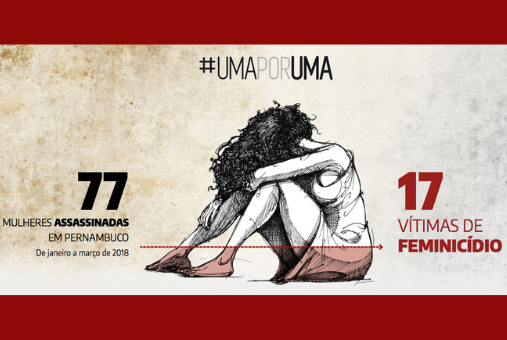
The project #UmaPorUma (#OneByOne), launched at the end of April, is dedicated to telling the stories of every woman murdered in the State of Pernambuco, Brazil since the beginning of the year.
Brazilian women sports reporters launched the online #DeixaElaTrabalhar (#LetHerWork) campaign after journalist Bruna Dealtry was kissed and harassed on live television.

João Moreira Salles spoke about the principle challenges facing the Brazilian press today, chief among them a lack of diversity in terms of race, economics, gender, religion, geography and media ownership.
The Knight Center for Journalism in the Americas is participating in the new Women Journo Heroes campaign led by the International Women’s Media Foundation (IWMF). For the month of October, IWMF is asking the community to help in honoring women journalists around the world by sharing photos of stories of courageous women journalists via Twitter, Facebook, Instagram and other platforms.
A series of initiatives that have emerged in Brazil in recent years have sought to increase the presence of women and experts of color as journalistic sources. The intention is to bring more diversity into the public debate and to transform the representation of these social groups in media, which mostly choose white men to be specialists and voices of authority in their stories.
Women journalists, communicators, programmers and designers in Latin American media are like diamonds forming under great pressure, according to CEO and founder of Chicas Poderosas, Mariana Santos. Her organization wants to bring these gems to the surface with a new incubator for women media entrepreneurs.
Women are leaders at more than 60 percent of digital media sites in Latin America.
Quechua, like Greek and Hebrew, is one of the world's ancestral languages that continues being used today. The language is still spoken in much of Peru, Bolivia, Ecuador and in some parts of Colombia, Chile and Argentina; however, the speed with which its use is being left behind is dizzying.
In the 10 years of the violent Drug War in Mexico, journalists have rarely had the time to reflect on how the violence affects both them and the people around them.
She was born 38 years ago in Argentina and is the mother of 5-year-old twins Ignacio and Nahuel and 7-month-old Lautaro. She lives in the province of San Martín, Buenos Aires.